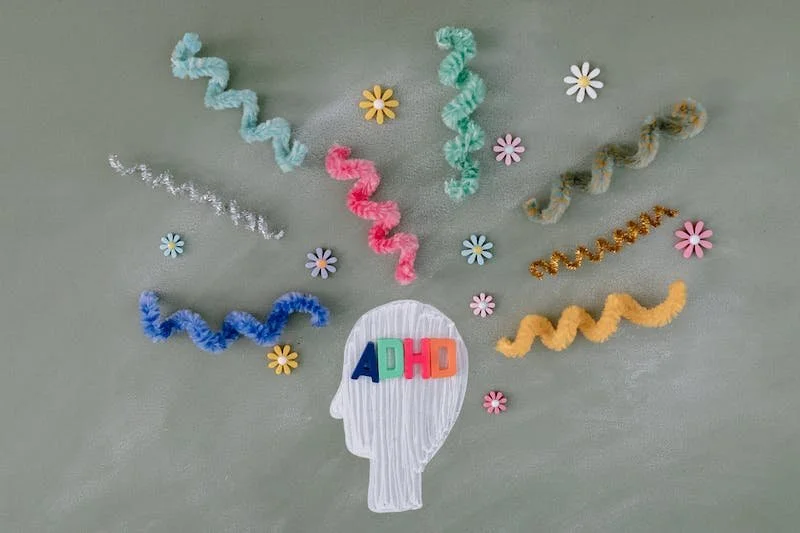6 common ADHD myths and misconceptions
Please note: our blog posts are solely informational and are not meant to replace individualized therapeutic advice or healthcare.
There are several myths and misconceptions about ADHD which a growing body of research continues to dispel. Although misconceptions exist, it is important to continue to educate people about this disorder, challenge stigma, and promote greater awareness and empathy. Here are some common ADHD myths and misconceptions.
Myth # 1: ADHD is just an excuse for laziness and poor behaviour
This is a common misconception about ADHD. In reality, people with ADHD often struggle with productivity, motivation, emotional regulation, and executive functioning due to the neurobiological effects of the disorder. It is important to recognize that ADHD is not a choice. For individuals living with ADHD, it is not that the brain does not want to do something, but it can’t. Thus, there is a key distinction to be made between “won’t” and “can’t” as it relates to the ADHD brain.
Myth # 2: ADHD is not a real disorder
ADHD is a complex neurodevelopmental disorder that affects approximately 5.3% of the world’s population [1]. Neuroimaging studies have revealed several differences in the brains of individuals with ADHD as compared to those without the disorder. For example, brain scans have revealed that individuals with ADHD have a thinner cerebral cortex (an area responsible for executive functioning), smaller volumes of gray matter (implicated in working memory, attention, and inhibition), reduced neural connectivity between brain regions, and lower amounts of neurotransmitters such as serotonin, dopamine, and norepinephrine [2][3]. ADHD has also been shown to run in families with high heritability of approximately 80% [4].
Myth # 3: ADHD only impacts children
Although for many years ADHD was believed to only impact children and adolescents, it is now well documented that ADHD is a lifespan disorder that impacts individuals of all ages. Although symptoms initially present in childhood, they will often persist into adulthood. In adulthood, individuals with ADHD experience executive function impairment which commonly leads to difficulties with organization, planning, task completion, and the management of thoughts and behaviours. While ADHD can present challenges, it can also come with many strengths such as creativity, hyperfocus on tasks of interest, and a strong ability to think outside the box. With the right support and strategies in place, individuals of all ages who have been diagnosed with ADHD can excel in academics, work, and relationships.
Myth # 4: ADHD is over-diagnosed
An increase in ADHD diagnosis rates over recent years [5] has led some people to question if this disorder is being over-diagnosed. In reality, individuals are being carefully assessed and diagnosed in accordance with best practice clinical guidelines and diagnostic numbers have not been shown to exceed the number of individuals with this disorder [6]. Possible reasons why ADHD diagnostic rates have increased include greater awareness of this condition, better screening tools, and decreased stigma associated with ADHD.
Myth # 5: Medication is the only treatment for ADHD
While medication can be helpful in managing the symptoms of ADHD, it is not the only treatment option. A multimodal approach to treatment using a combination of medication, counselling (e.g., ADHD-focused cognitive behavioural therapy), skills training, and academic/work accommodations may be most effective for many people. Determining the best treatment approach is highly individual and depends on each person’s unique needs. Developing an individual treatment plan is done in collaboration with a qualified healthcare professional or team of professionals.
Myth # 6: ADHD is caused by poor parenting or a lack of discipline
The main causes of ADHD are neurological and genetic, rather than social. Although parenting strategies can impact ADHD symptoms, they are not the cause of the disorder. Parenting strategies such as positive reinforcement, clear instructions, and predictable routines can help alleviate the severity of symptoms. Conversely, symptoms may be worsened by inconsistent discipline and/or low parental involvement [7].
If you are considering exploring therapy you can contact us with questions or book a FREE consultation. We’ll get to know you and your needs in therapy and then pair you with the right therapist on our team.
Polanczyk, G., de Lima, M. S., Horta, B. L., Biederman, J., & Rohde, L. A. (2007). The worldwide prevalence of ADHD: A systematic review and metaregression analysis. American Journal of Psychiatry, 164(6), 942–948. https://doi.org/10.1176/ajp.2007.164.6.942
Matthews, M., Nigg, J. T., Fair, D. A., (2014). Attention deficit hyperactivity disorder. Current Topics in Behavioural Neurosciences, 16, 235-266. https://doi.org. 10.1007/7854_2013_249
Blum, K., Chen, A. L., Braverman, E. R., Coming, D. E., Chen, T., Arcuri, V., Blum, S. H., Downs, B. W., Waite, R. L., Notaro, A., Lubar, J., Williams, L., Prihods, T., Palomo, T., Oscar-Berman, M. (2008). Attention-deficit-hyperactivity disorder and reward deficiency syndrome. Neuropsychiatric Disease and Treatment, 4(5), 893-918. https://doi.org/10.2147/ndt.s2627
Grimm, O., Kranz, T. M., & Reif, A. (2020). Genetics of ADHD: What should the clinician know? Current Psychiatry Reports, 22(4). https://doi.org/10.1007/s11920-020-1141-x
Chadd. (2023). General prevalence of ADHD. https://chadd.org/about-adhd/general-prevalence
Visser S. N., Zablotsky, B., Holbrook, J. R., Danielson, M. L., Bitsko, R. H. (2015). Diagnostic experiences of children with attention-deficit/hyperactivity disorder. National Health Statistics Reports, 81, 1-7. https://pubmed.ncbi.nlm.nih.gov/26375578/
Ellis, B., & Nigg, J. (2009). Parenting practices and attention-deficit/hyperactivity disorder: New findings suggest partial specificity of effects. Journal of the American Academy of Child & Adolescent Psychiatry, 48(2), 146–154. https://doi.org/10.1097/chi.0b013e31819176d0

